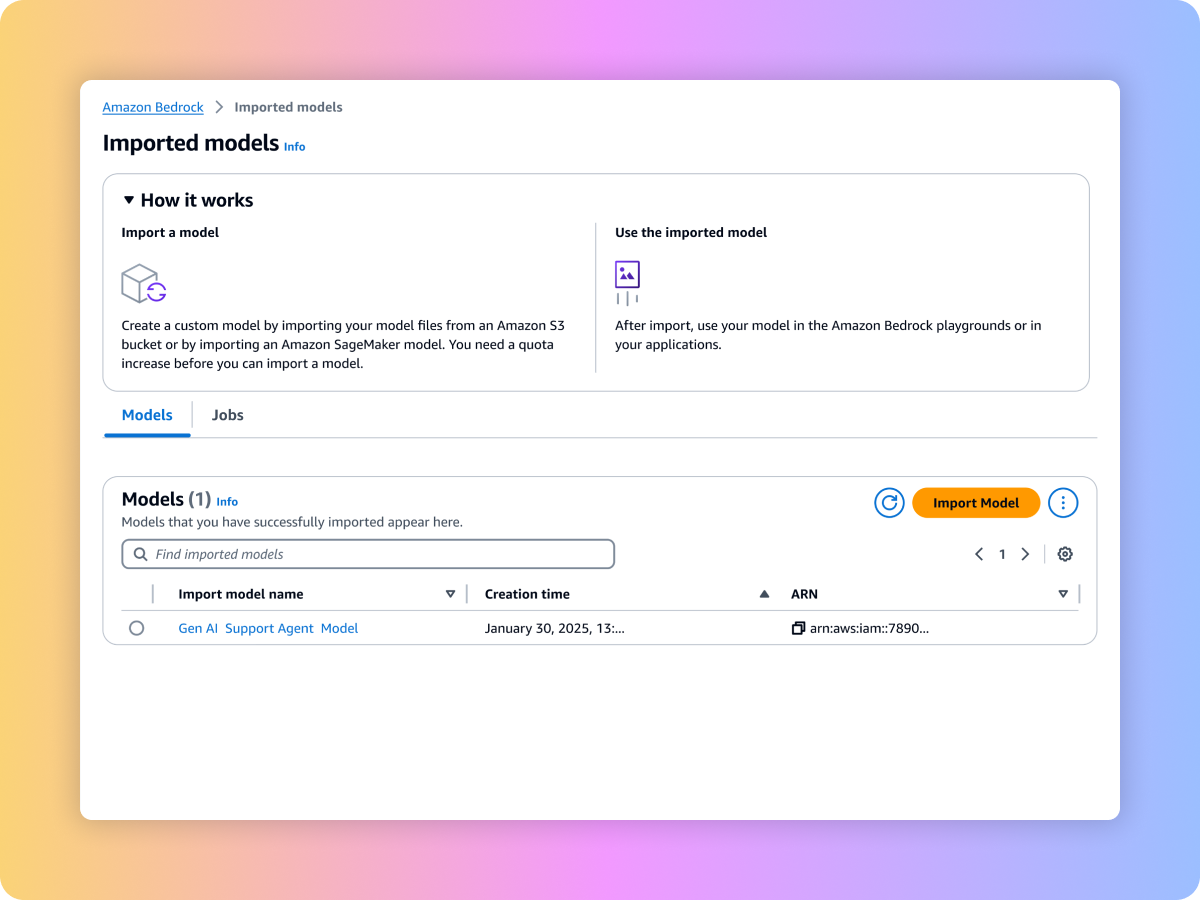- Generative AI›
- Amazon Bedrock›
- Custom Model Import
Amazon Bedrock Custom Model Import
Leverage your customized models in Amazon Bedrock
Overview
Amazon Bedrock Custom Model Import enables the import and use of your customized models alongside existing foundation models (FMs) through a single serverless, unified API. You can access your imported custom models on-demand and without the need to manage underlying infrastructure. Accelerate your generative AI application development by integrating your supported custom models with native Bedrock tools and features like Knowledge Bases, Guardrails, and Agents.

Key benefits
Amazon Bedrock Custom Model Import simplifies and streamlines the process of deploying models that have been customized outside of Bedrock. Previously, utilizing models customized externally required the use of self-managed infrastructure, creating a fragmented experience for developers. With Custom Model Import, you can access your imported custom models in a serverless, on-demand fashion, eliminating the need to manage instances and the overhead associated with model lifecycle and infrastructure management.
Amazon Bedrock Custom Model Import unifies the developer experience by allowing seamless integration of externally customized models. This feature enables developers to access both base and imported custom models through a single API, streamlining gen AI application development. Additionally, you can leverage native Bedrock tooling, such as Knowledge Bases, Guardrails, Agents, and more with your imported custom models just as you do with other Bedrock on-demand foundation models.
Custom Model Import provides you the flexibility to use your prior investments in model customization. Previously, those who customized models outside of Amazon Bedrock had to recreate those customizations within Bedrock. With Custom Model Import, you can now import your existing customized models and register them as imported models on Amazon Bedrock. You can flexibly use these FMs alongside base models to build applications. This flexibility gives you more value out of your previous model customization efforts and integrates the FMs into your applications built in Bedrock.
Deploy DeepSeek-R1 with Custom Model Import
Amazon Bedrock Custom Model Import supports distilled Llama versions of DeepSeek-R1. Current supported variants include DeepSeek-R1-Distill-Llama-8B and DeepSeek-R1-Distill-Llama-70B, offering an optimal balance between performance and resource efficiency. These models can be imported from Amazon Simple Storage Service (Amazon S3) or an Amazon SageMaker AI model repo, and deployed in a fully managed and serverless environment through Custom Model Import.
Get started
Did you find what you were looking for today?
Let us know so we can improve the quality of the content on our pages